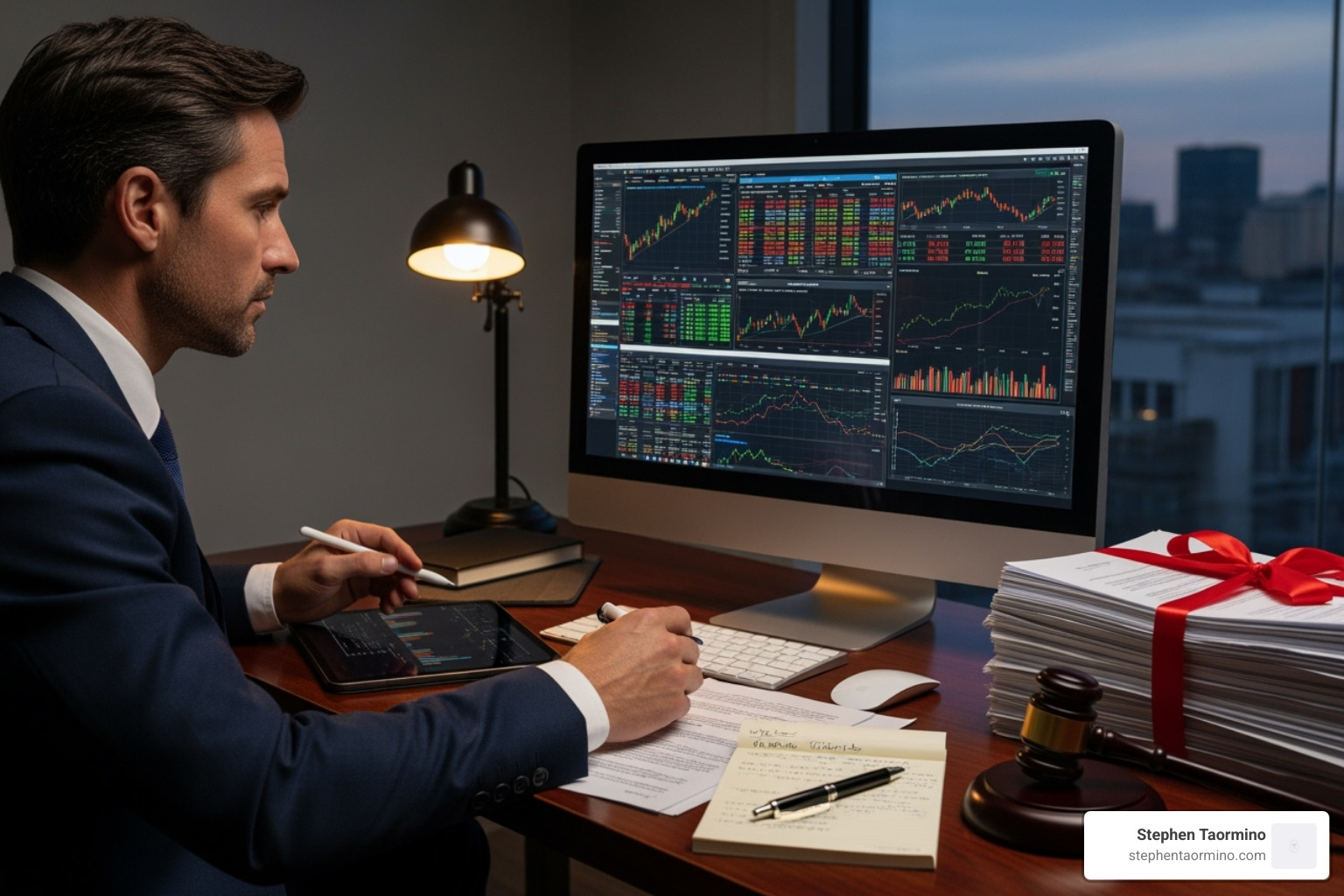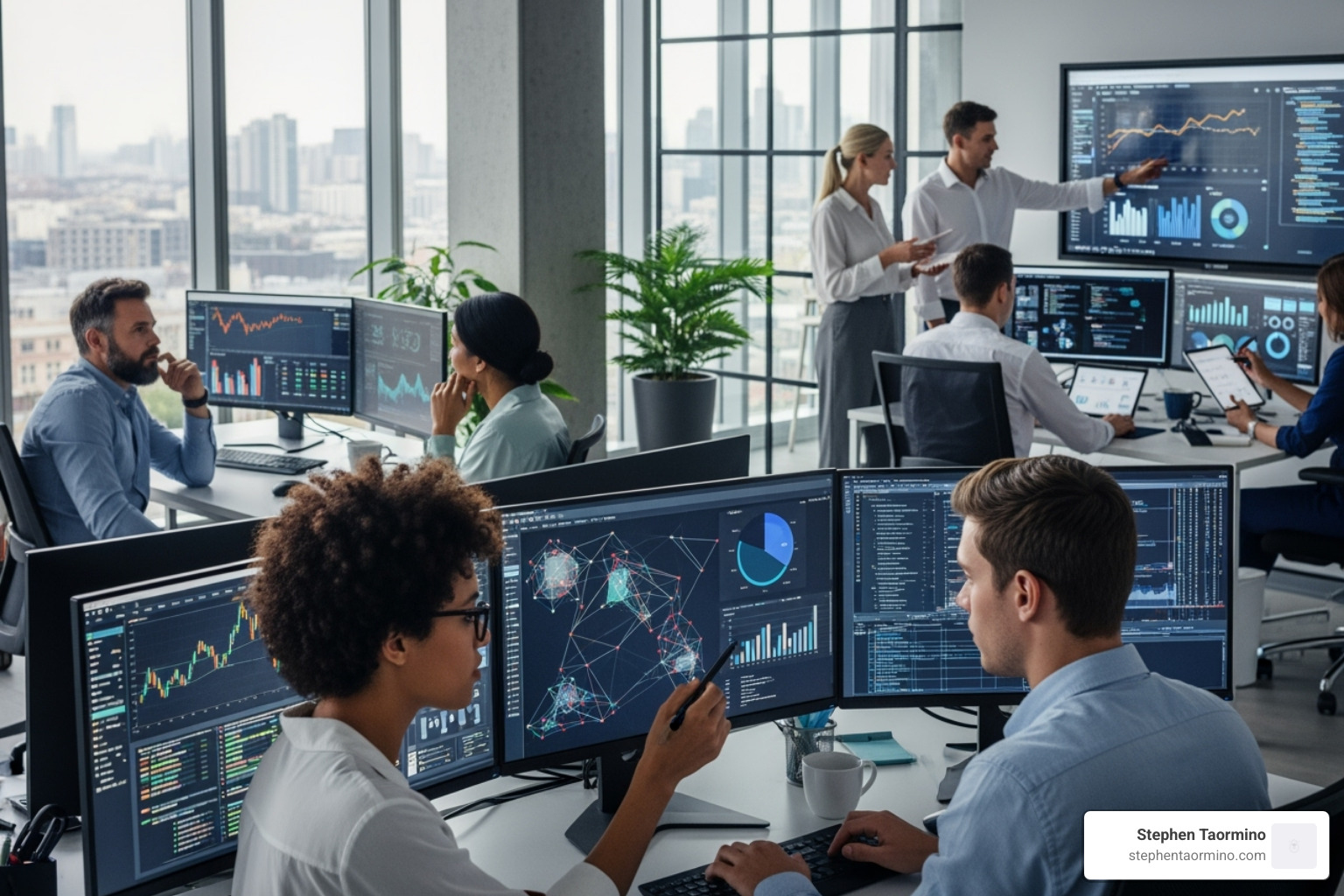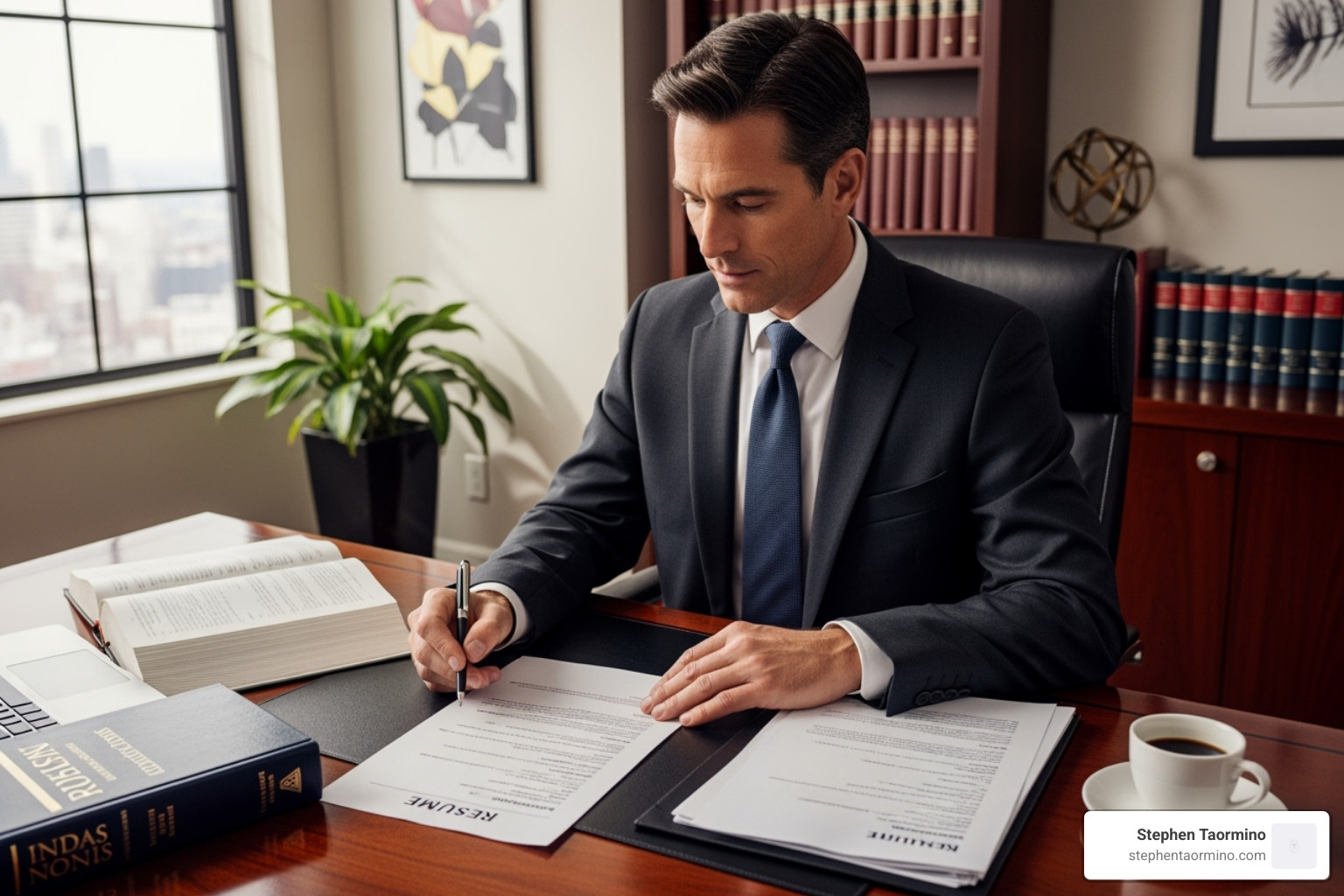Financial Markets Expert Witnesses: Your 2025 Advantage
Why Financial Markets Expert Witnesses Are Your Secret Weapon in Complex Litigation
Financial markets expert witnesses are specialists who provide critical testimony in legal cases involving securities, investments, and other financial disputes. They translate complex financial concepts into clear evidence, helping courts make informed decisions in high-stakes litigation.
Key reasons attorneys engage financial markets expert witnesses:
- Securities fraud cases – Analyze trading patterns, market manipulation, and Rule 10b-5 violations
- ERISA litigation – Evaluate fiduciary duty breaches and imprudent investment decisions
- Damages calculations – Quantify economic losses from financial misconduct
- Market efficiency testimony – Support class certification and loss causation arguments
- Regulatory compliance – Interpret FINRA, SEC, and other financial regulations
- Complex instrument analysis – Explain derivatives, structured products, and alternative investments
Modern financial markets have evolved with algorithmic trading, cryptocurrency, and complex products. Cases now involve massive data sets, social media manipulation, and blockchain forensics—areas where traditional legal expertise is insufficient.
Financial markets expert witnesses typically earn $200-$600 per hour, with specialists in securities and derivatives commanding premium rates for court testimony.
As Stephen Taormino, my experience as an expert witness and in marketing psychology offers unique insights into communicating complex market behaviors to judges and juries. My background in analyzing human behavior and digital market dynamics is invaluable for presenting expert testimony effectively, bridging the gap between financial complexity and courtroom clarity.
The Crucial Role of Financial Markets Expert Witnesses in Modern Litigation
In complex financial disputes, financial markets expert witnesses act as essential translators. They take bewildering financial concepts and transform them into clear, compelling narratives that judges and juries can understand.
Financial markets expert witnesses don’t just crunch numbers. They perform deep financial analysis of trading patterns and market behaviors. Their litigation support involves reviewing documents, identifying key issues, and building analyses that stand up to tough cross-examination.
And their courtroom testimony? It can absolutely determine a case’s outcome.
Their real value is simplifying complex financial data while keeping its essence. They explain not just what happened, but why it matters, providing the objective opinion needed to steer financial complexity. Every piece of evidence they present must meet the strict standards of the Federal Rules of Evidence, ensuring their analyses are legally bulletproof.
For more insights on how we simplify complex financial topics, explore our video resources.

The Modern Expert: How Technology and Market Changes Evolved the Role
Today’s lightning-fast, technology-driven markets bear little resemblance to the past, and financial markets expert witnesses have evolved dramatically to keep pace. Modern experts are part detective, data scientist, and storyteller. Using sophisticated data analytics, they process terabytes of trading data quickly. In cases of market manipulation, they use social media analysis to trace how online posts affect stock prices through trading algorithms.
The rise of algorithmic trading and high-frequency trading has created new disputes, demanding experts who grasp microsecond-level decisions. Similarly, cryptocurrency and blockchain forensics present fresh challenges, from tracing Bitcoin transactions to valuing NFTs for litigation. Experts who can steer these evolving waters are invaluable. For a deeper dive into how these markets operate, the U.S. Treasury’s financial market overview offers excellent context.
Financial Expert vs. Other Expert Witnesses: Understanding the Distinction
Not all financial experts are the same. Financial markets expert witnesses occupy a specific niche that distinguishes them from other financial professionals. The key difference is specialization. A financial markets expert understands market forces, regulations, and investor psychology, possessing deep industry-specific knowledge beyond general accounting. Their quantitative analysis skills are focused on market behaviors, trading patterns, and investment performance.
| Expert Type | Key Responsibilities | Typical Cases | Core Skills |
|---|---|---|---|
| Financial Markets Expert Witness | Analyzes investment practices, securities regulations, market behaviors, and complex financial instruments | Securities fraud, market manipulation, ERISA litigation, derivatives disputes, fiduciary duty breaches | Deep market knowledge, regulatory expertise, quantitative analysis, financial modeling, industry standards |
| Forensic Accountant | Investigates financial discrepancies, traces funds, identifies fraud, prepares misconduct reports | Embezzlement, financial reporting fraud, asset misappropriation, bankruptcy fraud, divorce asset tracing | Accounting principles (GAAP/IFRS), auditing, fraud detection, financial investigation, data analysis |
| Economic Damages Expert | Calculates economic losses or gains across various litigation contexts and industries | Personal injury, wrongful death, breach of contract, business interruption, intellectual property disputes | Economic theory, statistical analysis, valuation methodologies, lost profits calculation, present value analysis |
Just as a car accident case needs a traffic reconstruction expert, a securities fraud case requires someone who lives and breathes financial markets, not just a generalist.
Decoding Complexity: Core Areas of Financial Expertise
Financial markets expert witnesses steer a world where complexity is the norm. Their expertise spans from traditional securities and banking to cutting-edge cryptocurrency transactions, covering the full spectrum of financial markets, including complex structured products. They are financial translators, converting the language of markets into plain English while maintaining legal precision. These experts must understand financial instrument mechanics, regulatory frameworks, market psychology, and the technology driving daily transactions. They analyze corporate finance, evaluate banking operations, and conduct due diligence to uncover hidden risks or fraud.

Securities Fraud, Market Manipulation, and ERISA Litigation
High-stakes cases involving financial markets expert witnesses often revolve around securities fraud and market manipulation. When fraud is alleged, experts analyze Section 10(b) and Rule 10b-5 violations. Proving manipulation is complex, so they examine trading records for signs of churning (excessive trading to generate commissions), insider trading, or artificial price influence.
In class certification cases, experts must demonstrate widespread harm, often through sophisticated analysis of market efficiency. ERISA litigation presents its own challenges, with cases involving retirement plans where fiduciaries are accused of breach of fiduciary duty or making imprudent investments. Experts evaluate whether plan managers acted in participants’ best interests, comparing investment decisions against industry standards. The regulatory landscape is complex, governed by organizations like FINRA, whose regulations frame fair dealing in securities markets.
Valuation, Damages, and Forensic Analysis
Beyond fraud, experts focus on business valuation and economic damages. In shareholder disputes or cases of business harm, they provide the analytical foundation for resolution. Calculating economic damages, such as lost profits or the value of stolen intellectual property, requires technical skill and judgment. Experts develop methodologies to provide reasonable estimates based on market data. For more on this, see Economic damages.
Forensic accounting is the detective work of the financial world. When money is missing or financial statements are inconsistent, these experts follow the trail. Asset tracing has become critical in our global economy, as skilled forensic experts can follow digital breadcrumbs across borders. Intellectual property valuation adds another dimension, requiring experts to assess the worth of patents, trademarks, and other intangible assets. You can learn more about Forensic accounting.
Specialized Financial Instruments and Markets
Modern finance has evolved beyond simple stocks and bonds, featuring sophisticated instruments that create both opportunities and risks. Derivatives are a highly complex area. These contracts (options, futures, swaps) derive value from underlying assets, and their behavior can be counterintuitive. Experts need deep mathematical and market knowledge to evaluate them in disputes over mis-selling, valuation, or manipulation.
Hedge funds and private equity operate in a world of alternative investments with unique strategies and regulatory considerations. Experts evaluate whether these funds operated according to their offering documents and if their fees were reasonable. Structured finance products like mortgage-backed securities (MBS) require experts who understand their structure, risks, and market performance. Venture capital investments involve specialized knowledge, from valuation methods for early-stage companies to governance structures. For additional context, Investment banking concepts provides useful background.
Selecting Your Expert: Key Qualifications and Vetting Practices
Finding the right financial markets expert witness is critical, as the stakes are too high to settle. The expert you choose can determine your case’s outcome. You need someone whose expertise aligns with your legal challenge, who can translate financial jargon into compelling narratives, and whose integrity is beyond reproach. The vetting process requires careful attention to what truly matters: finding a professional who can withstand intense scrutiny and communicate effectively under pressure.

Key Qualifications for Top-Tier Financial Markets Expert Witnesses
When evaluating potential experts, look for a combination of academic excellence, real-world experience, and courtroom performance.
- Professional certifications are a key quality filter. Look for credentials like Certified Public Accountant (CPA), Chartered Financial Analyst (CFA), Certified Fraud Examiner (CFE), and Certified Financial Planner (CFP). These designations represent rigorous study and adherence to professional standards. Learn more about What is a CPA?.
- Advanced degrees like PhDs in Economics or Finance or MBAs indicate the ability to think critically and conduct sophisticated research.
- Industry experience is where theory meets reality. The most effective experts often have over 30 years of hands-on experience at major financial institutions, giving them an understanding of how markets operate beyond textbooks.
- Publication history in peer-reviewed journals or books demonstrates thought leadership and the ability to articulate complex ideas clearly.
- Prior testimony experience is invaluable. Veterans of depositions and trials understand the legal process and maintain composure under questioning.
- Regulatory background with the SEC, FINRA, or other bodies provides insider knowledge of compliance and enforcement.
The Cost of Expertise: Understanding Fee Structures
Expert fees reflect their specialized knowledge. Hourly rates for case review typically range from $200-$450, while deposition fees are higher, around $400-$500 per hour. Court testimony commands premium rates, potentially reaching $600 per hour, reflecting the intense preparation required. Retainer fees are common to ensure the expert’s availability. Always insist on fee transparency from the start to discuss billing, expenses, and other charges, which helps you budget accurately.
The Interview: Questions to Ask a Potential Expert
The interview is your chance to assess an expert’s fit beyond their credentials. Here are key areas to cover:
- Case-Relevant Experience: “What specific experience do you have with cases similar to ours?” Listen for detailed, relevant examples.
- Conflicts of Interest: “Have you identified any potential conflicts?” A thorough expert will have a transparent conflict-checking process.
- Communication Style: “How do you explain complex financial concepts to a non-financial audience?” Look for a commitment to clarity over jargon.
- Availability: “What is your current caseload, and can you dedicate the necessary time to our case?” Ensure they can meet your deadlines.
- Methodology: “Can you walk me through your typical approach to [a specific analysis]?” Their response should demonstrate systematic thinking.
- Cross-Examination Experience: “How do you prepare for aggressive cross-examination?” The best experts view it as an opportunity to reinforce their opinions.
Maximizing Impact: Collaborating With and Preparing Your Expert
Getting the most value from your financial markets expert witness requires a partnership that transforms complex analysis into courtroom gold. It’s about building a team that works together seamlessly toward a common goal.
Best Practices for Engagement and Collaboration
Effective collaboration begins on day one. Here are some best practices:
- Engage early. This gives your expert time to understand the case, spot hidden issues, and help shape your strategy.
- Provide all relevant documents. Your expert needs the full picture—financial statements, trading records, emails, and contracts—to build a complete analysis.
- Maintain open communication. Regular check-ins keep everyone aligned as the case evolves and new evidence emerges.
- Define the scope clearly. Be specific about the questions you need answered to prevent scope creep and focus your expert’s energy on what’s most critical.
- Set clear expectations. Agree on timelines, deliverables, and roles early to avoid last-minute surprises.
- Conduct mock depositions. Practice sessions help your expert refine their message, anticipate tough questions, and build confidence.
From Report to Testimony: Preparing for the Courtroom
The journey from analysis to testimony is both science and art. Expert reports are the foundation, presenting findings and methodologies in clear language, often using charts and graphs to tell a story. Rebuttal reports are your counterattack, dissecting the other side’s arguments and highlighting inconsistencies.
Deposition strategy means anticipating your opponent’s moves. The art lies in simplifying the narrative without losing accuracy. This means using clear analogies and examples that truly resonate with judges and juries.
Visual aids like charts and graphs are game-changers. They make complex financial data understandable in seconds.
This is where storytelling with data becomes incredibly powerful. The best experts don’t just present numbers. They weave them into a compelling narrative that explains not only what happened, but why it matters. This approach can significantly influence how a case is perceived.
For more on this, explore how behavioral economics applies to jury perception.
How Financial Markets Expert Witnesses Bolster High-Stakes Cases
A skilled expert can fundamentally transform your case in several ways:
- Strengthening Claims: Expert analysis turns suspicious patterns into evidence-backed allegations.
- Quantifying Damages: Precise loss-causation and damages analyses are often where cases are won or lost.
- Challenging Opposing Experts: A skilled expert can identify flaws in the other side’s methodologies and undermine their arguments.
- Supporting Settlement Negotiations: Compelling expert testimony often encourages the other side to negotiate more realistically.
- Educating Judges and Juries: Experts bridge the gap between financial complexity and legal decision-making, ensuring verdicts are based on understanding.
Conclusion: Securing Your Advantage with the Right Expertise
In complex financial litigation, the right financial markets expert witness is often the deciding factor between winning and losing. They uniquely transform mind-boggling financial complexity into clear, compelling stories for judges and juries. They are the essential translators between the intricate world of modern finance—with its algorithmic trading and cryptocurrency forensics—and the legal system’s need for clarity and credibility.
The right expert combines crucial elements: deep industry experience, top credentials (CFA, CPA), advanced degrees, and proven performance under cross-examination. Their value extends beyond technical knowledge; it’s their ability to explain why the numbers matter to real people, whether quantifying damages from market manipulation or explaining a derivatives dispute.
Finding the right expert requires careful vetting, from reviewing their publications to interviewing them about their analytical approach. The investment in expert fees—typically ranging from $200 to $600 per hour—pays dividends in favorable settlements or trial outcomes.
My specialty in marketing psychology highlights the power of clear communication in high-stakes situations. The most effective financial markets expert witnesses know that technical accuracy is useless if the audience is lost. They use visual aids, craft data-driven narratives, and prepare carefully for cross-examination.
The collaboration between attorney and expert makes all the difference. Early engagement and open communication ensure the expert can help shape strategy from the beginning. In the end, securing the right expertise means finding someone who combines authoritative knowledge with exceptional communication skills. When you find that combination, you’ve gained a strategic advantage that can transform your case outcome.
Learn how behavioral economics can strengthen your case presentation

